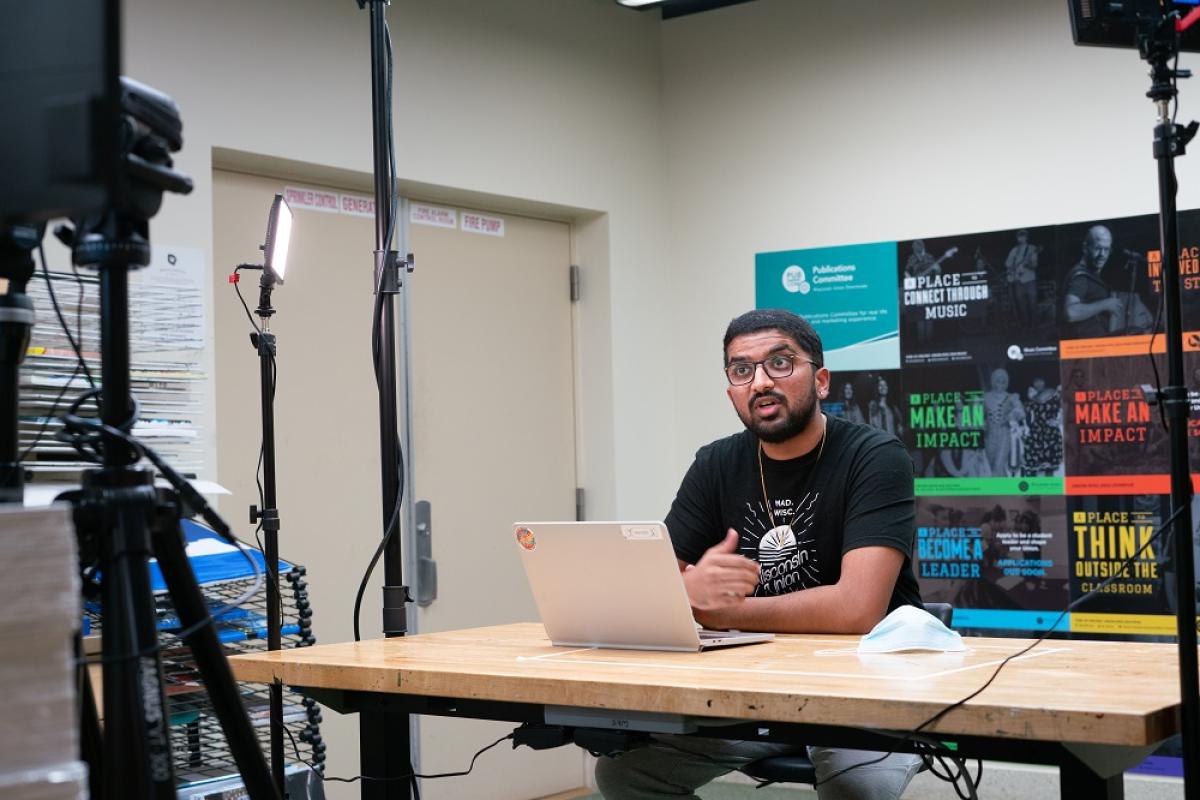University of Wisconsin–Madison team members collaborated for months with a common goal: determine how to further strengthen leadership education at UW–Madison.
Leadership advocates from across campus convened to facilitate UW–Madison’s participation in the Multi-Institutional Study of Leadership (MSL), an international research program focused on understanding how higher education can help students develop leadership skills.
Through the study, the group aimed to learn how the University can help prepare students to thrive in a changing society and an evolving global economy through the development of leadership skills.
The group provided a survey on leadership to UW–Madison undergraduate students and doctor of pharmacy students. About 5,000 students completed the survey, giving the group insight into students’ attainment of leadership skills, their access to leadership education and their experiences with leadership.
An MSL coalition of UW–Madison administrators, faculty and staff members then formed to interpret the results of the survey in collaboration with survey and data analysis experts.
Key findings from the survey included but are not limited to:
- UW–Madison students are in line with other universities’ students in acquiring leadership skills.
- UW–Madison students are gaining leadership skills at a level consistent with students in previous years.
- Students’ involvement in community service, organizations, student groups, mentoring and leadership training increased their leadership skills acquisition
- Demographics were generally not a factor in student opportunities for involvement in the above activities and usually not a factor in the acquisition of leadership skills, with the exceptions of international student status and GPA.
From these and other findings, the coalition developed the following recommendations to improve leadership education at UW–Madison:
- Identify benchmarks that allow UW–Madison to determine student success relative to peer institutions and to previous UW–Madison students
- Establish infrastructure, such as programming and staffing, that supports leadership skills development best practices
- Expand leadership research and assessment.
- Develop and/or connect complementary classroom and out-of-classroom learning programs
- Encourage both classroom and out-of-classroom leadership learning programs based in leadership theories
- Incorporate learning opportunities into the UW–Madison experience that are strongly associated with leadership skills-building in impact learning environments and work experiences
“UW–Madison is committed to preparing the next generation of leaders to make a positive impact in the world,” said Mark Kueppers, director of the Center for Leadership & Involvement (CfLI). “The Multi-Institutional Study of Leadership provides critical data to improve leadership programming in and out of the classroom.”
Current leadership opportunities for UW–Madison students include coursework offered by multiple schools and colleges as well as co-curricular opportunities that include but are not limited to more than 900 registered student organizations, hundreds of on-campus student employment positions, intramural sports, volunteer opportunities, learning opportunities through the Willis L. Jones Leadership Center, the Leadership Certificate Program, adventure-based team-building workshops through Adventure Learning Programs (ALPs), and leadership skills development through the students-run Student Leadership Program (SLP).
The CfLI team will help establish working groups to address these recommendations and work across campus to make data-driven leadership education enhancements. In addition, UW–Madison staff, faculty and students can contact CfLI at cfli@studentlife.wisc.edu for leadership consultative support.
The CfLI team encourages staff, faculty and student leaders to review the MSL report, reach out with any questions they may have about leadership development, and to use the results to inform leadership education. The team also encourages current students to explore some of the existing leadership opportunities on campus here.
The MSL study effort included facilitation leadership from Kueppers and Greg Harrington, professor of civil and environmental engineering at the University of Wisconsin–Madison and chair of the Pieper Family Foundation Endowment for Servant Leadership; administrative support from CfLI staff; and data analysis support from the UW–Madison Division of Diversity, Equity & Educational Achievement.

